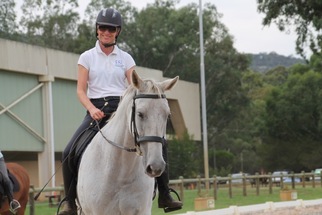
The gender disparity in equestrian sports has long been a topic of discussion and the reasons that are given to explain women's love of horses says as much about our society as they do about the situation. "It's a nurturing sport," or, "it's a social sport" and even, "it's a sport where they get to dress themselves and their horses up." These explanations, which make me think that making stupid assumptions about the motivation of female riders is actually the MOST dangerous past-time ever, speak more to the way that gender operates in our society than to the truth. I'm not actually sure what the truth of the matter is, but I'm willing to bet that it's nothing at all to do with nurturing, because if that was the case we could all buy bunnies and kittens, and could save a small fortune on saddlery, stock feed and physiotherapy.
Maybe the answers are in our history, as answers quite often are. From the sixth century BC until the first few centuries AD there were tribes of mounted nomads that roamed around the lands of Russia and Kazakhstan. The Sarmatians were highly skilled horse handlers and fierce warriors.
Nowadays we have sports bras, so some of the Sarmatian habits are somewhat redundant but despite all that, maybe there's just a little bit of the Sarmatian in all of us. I suppose it is possible that the Sarmatians were the origin of a warrior woman gene that has spread throughout the world and which draws women to horses, still, despite their background or nationality. But I think it's more likely that the Sarmatians – nomadic and without government or mass forms of communication simply did a job that they had to do, safe from the limitations of gendered expectation. Wherever tribes settled in one spot and lost their nomadic ways, the role of women became more focused on domesticity, their status was eroded and they were constrained more. So, for the Sarmatian women the horse was very much a part of their power and independence.
Just as it is now. I think that horses offer women power and independence. They offer the ability to take great risks with our bodies when at every other moment they are under the scrutiny of a society that views women's bodies as a commodity. And they offer the opportunity to be assertive without censure – to control 600kgs of instinct and muscle. And they offer the possibility of bringing us in touch with some deeper part of ourselves that knows we are capable of absolutely anything. Anything at all. Because, for women who love horses, the sound of hooves galloping is loud enough to drown out the voices that constrain us.

 RSS Feed
RSS Feed
